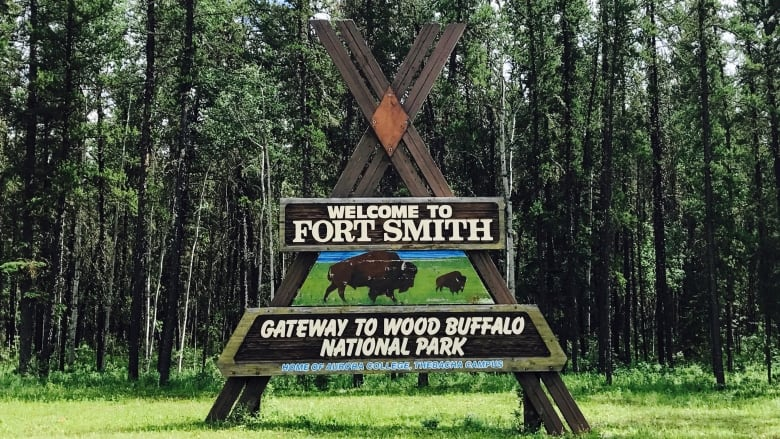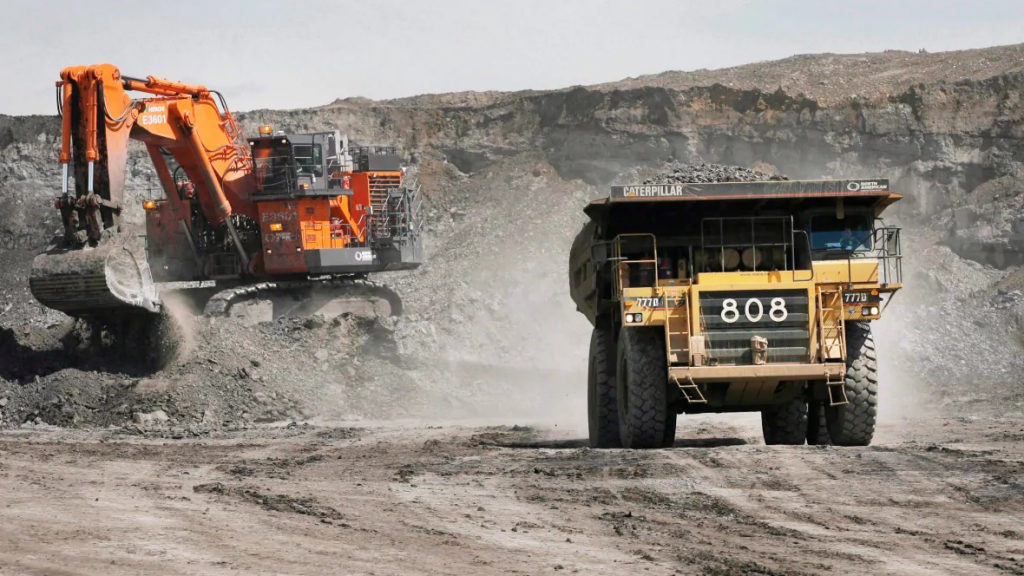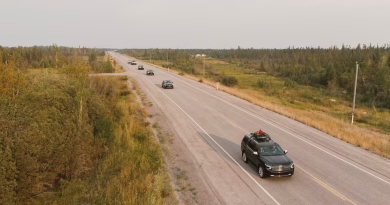Northwestern Canadian First Nation asks N.W.T. to speak out against northern Alberta mine

The chief of Smith’s Landing First Nation near Fort Smith, , is calling on the territorial government to speak out against a northern Alberta mining project.
“The government of the Northwest Territories is strangely silent … on the oil sands projects,” Chief Gerry Cheezie said.
Cheezie said that Premier Caroline Cochrane should be hosting meetings with Prime Minister Justin Trudeau and Alberta Premier Jason Kenney to make sure the Indigenous communities living within the Mackenzie water system will not be affected by the controversial $20.6 billion Teck Frontier mining project that is proposed for a site 110 kilometres north of Fort McMurray, Alta.
A joint federal-provincial review board deemed the Teck Frontier mine in the public interest last July, despite “significant adverse … effects” to the environment, species at risk and the traditional practices of Indigenous peoples.
Federal Environment Minister Jonathan Wilkinson has the final say on whether the project goes forward. He must decide before the end of February.
If approved, the Teck Frontier mining project would produce 260,000 bitumen barrels a day and create 7,000 jobs in Alberta. Its lifespan is estimated to be 41 years.
N.W.T. waters ‘can be impacted’
Joslyn Oosenbrug, a communications manager with the N.W.T.’s Environment Department, said in a statement that the territory is the “ultimate downstream jurisdiction” of the Mackenzie River basin and that “N.W.T. waters can be impacted” by management decisions in Alberta.
In 2015, the Northwest Territories and Alberta signed a bilateral water management agreement to preserve the quantity and quality of the territory’s water.
Oosenbrug said Alberta must take action if the water quality deteriorates.
The territorial government did not make a submission to the joint federal-provincial review board on the Teck Frontier mining project.
Oosenbrug also said the territory monitors the water quality for any effects that could come from upstream oil extraction. The government has had a water monitoring site at Fort Fitzgerald, Alta., since the 1960s, which gives early warnings of any environmental changes in the Slave River.

Slave River ‘at a tipping point’
Part of the Smith Landing First Nation’s traditional territory runs just south of the border between the Northwest Territories and Alberta, along the Slave River and into the Peace-Athabasca Delta.
Smith’s Landing First Nation was only invited to join the review panel at their last session in October 2018 after pressuring Alberta on at least four separate occasions for the right to consult, said Becky Kostka, the land and resources manager for the First Nation.
In its final submission to the Alberta government, Smith’s Landing First Nation argues that it has seen a noticeable decline in water levels, water quality and air pollution — all stemming from other resource projects in northern Alberta.
Transcripts from members of the Smith’s Landing First Nation in that report say the Slave River is “at a tipping point” and that another resource project could “seal the fate” of the nation.
Requests for comment from multiple Alberta government ministries were not immediately returned.
Revving up advocacy work
Chief Cheezie will be speaking at a press conference in front of the environment minister’s Vancouver constituency office Monday. He and other Indigenous advocates will be presenting the minister’s office with a joint letter expressing their concerns over the Teck Frontier project.
“We haven’t been sitting on our hands here because we see the immense danger to our people,” he said. “We’re not going anywhere. Forty one years from now … when the mine shuts down, Teck will leave but we will still be [here].”
Cheezie said Smith’s Landing is also actively lobbying other federal ministers, including Dan Vandal, the new minister responsible for northern affairs.
Related stories from around the North:
Canada: Goldman Sachs will no longer fund drilling in Arctic refuge sacred to First Nations, CBC News
China: US sanctions against Chinese shipping company could hurt Russia’s LNG exports, The Independent Barents Observer
Finland: Finland investigates oil leak risks from Baltic Sea shipwrecks, Yle News
Iceland: Iceland to restrict heavy fuel oil use in territorial waters, Eye on the Arctic
Norway: Norway’s Equinor to drill new Arctic well in Barents Sea, The Independent Barents Observer
Russia: Russia approves airport plans to serve new Arctic natural gas project, The Independent Barents Observer
United States: Seattle council votes to withhold business from oil companies that explore Arctic Refuge, Alaska Public Media



